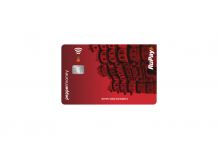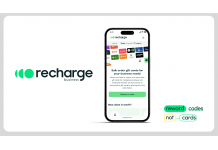FIS Partners With Issuer-Merchant Collaboration...
- 22.05.2025 11:25 am
Adyen Partners With BILL to Provide Advanced Card...
- 01.02.2024 11:35 am
Club Employés and Weavr Collaborate to Provide...
- 31.01.2024 01:45 pm
IDEX Biometrics Enables Rapid Mastercard Certification...
- 17.10.2023 02:50 pm
Pepper Money Launches RuPay-powered Prepaid Card,...
- 05.10.2023 08:45 am
Ingenico and Diggecard Announce a Comprehensive Gift...
- 19.09.2023 07:15 am
IDEX Biometrics Payment Card Solution Fully Certified...
- 30.08.2023 12:20 pm
Recharge Pilots New B2B Service, Enabling Corporate...
- 15.08.2023 09:55 am
Soft Space, Hong Leong Bank and JCB Expand JCB Card...
- 03.08.2023 06:50 am
Gate.io Introduces Crypto Gift Card: A Novel Way to...
- 28.07.2023 01:25 pm
IDEX Biometrics is Accelerating Biometric Payment...
- 24.07.2023 03:40 pm
Enfuce Issues Trailblazing Visa-branded NBX Credit...
- 13.07.2023 10:55 am






















